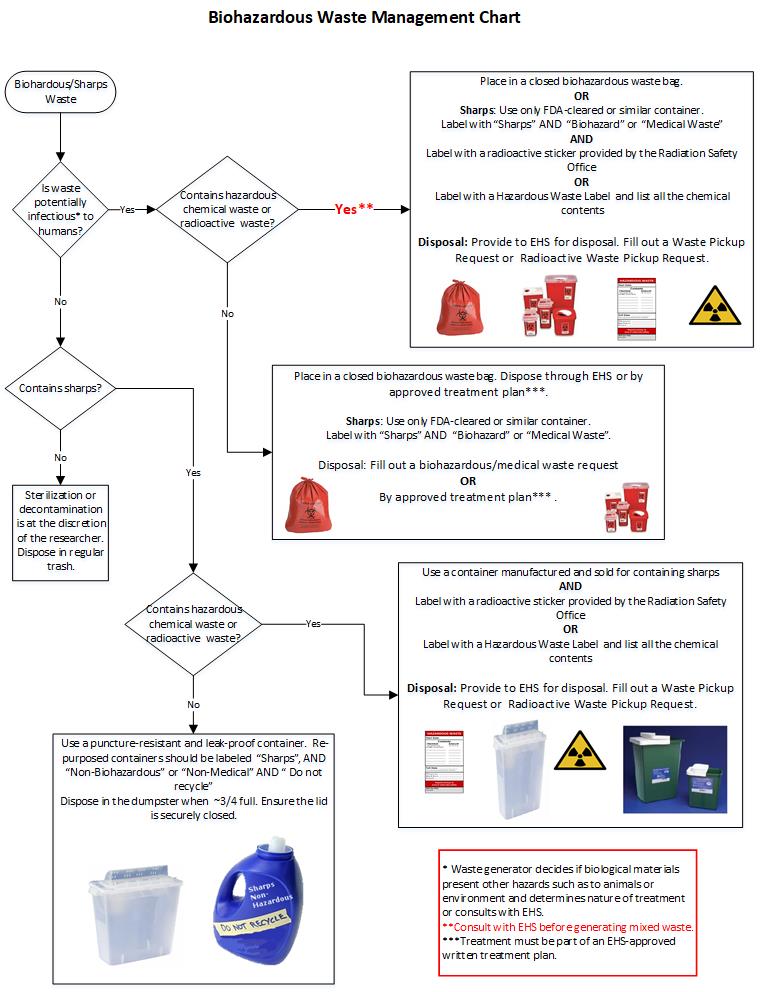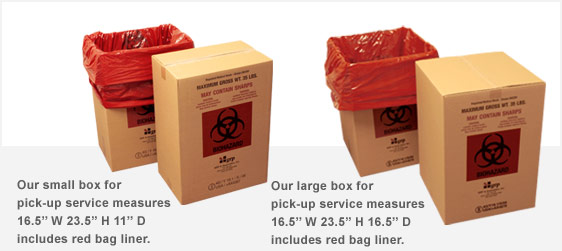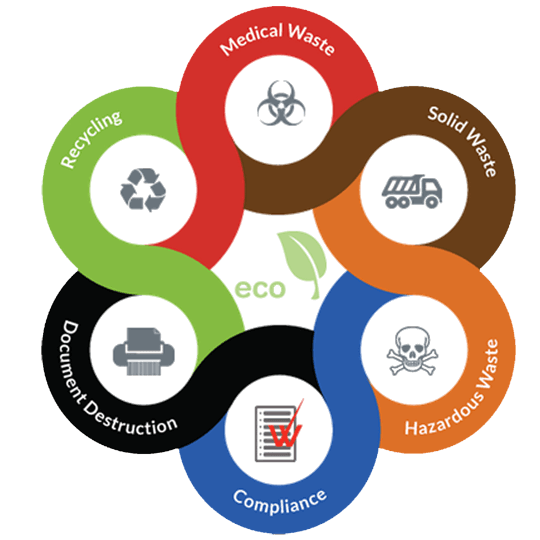Effective Medical Waste Disposal Services: Protecting Your Facility's Health
Effective Medical Waste Disposal Services: Protecting Your Facility's Health
Blog Article
Navigating Medical Garbage Disposal: Crucial Services for Healthcare Facilities
In the complex landscape of health care procedures, the management of clinical waste is an important aspect that demands meticulous attention. Health care centers, whether large health centers or small facilities, are handed over with the obligation of handling, treating, and disposing of a wide variety of clinical waste streams. The intricacies associated with navigating through the regulative needs, ensuring proper waste segregation, and carrying out risk-free collection and transportation processes are vital. Recognizing the vital solutions that sustain medical waste disposal is not just a matter of conformity yet additionally a fundamental element in securing public health and wellness and environmental health. The complexities of this procedure are crucial for health care centers, and the knowledge provided in this world plays an essential function in preserving the integrity of medical care systems.
Regulatory Compliance Support
For health care facilities, guaranteeing regulatory conformity assistance is crucial to keep appropriate handling and disposal of clinical waste. By partnering with regulatory conformity professionals, healthcare centers can remain updated on evolving regulations, mitigate threats linked with incorrect waste disposal, and ultimately add to a much safer and much more sustainable setting for all.
Waste Partition Guidance

Medical care centers should offer clear guidelines and training to staff on how to segregate waste properly. This consists of dividing general waste from dangerous materials such as sharps, transmittable waste, drugs, and chemical waste.
Collection and Transportation Solutions

Proper collection and transport services are necessary elements of the medical garbage disposal process in healthcare facilities. These solutions make sure that dangerous materials are taken care of securely and in compliance with guidelines to protect both the setting and public health and wellness. Medical care centers count on specialized waste monitoring business to provide reliable collection and transportation solutions tailored to their needs.
Clinical waste collection entails segregating different kinds of waste at the factor of generation, making use of color-coded bags or containers to differentiate between basic, hazardous, pharmaceutical, and other waste streams. When accumulated, the waste is moved in specialized vehicles equipped to deal with unsafe materials securely.
Treatment and Disposal Solutions
In the realm of medical garbage disposal for medical care facilities, after the vital phase of collection and transport solutions, the emphasis shifts towards executing efficient treatment and disposal services. Treatment services typically include processes such as autoclaving, which uses heavy steam under pressure to sanitize the waste. This method is typically utilized for transmittable waste that needs to be made non-hazardous before disposal. One more prevalent treatment method is incineration, where waste is subjected to high temperatures in regulated setups to lower its quantity and eliminate pathogens.
Disposal services include the last action in the clinical waste administration procedure. Reusing and websites source recuperation are likewise gaining traction as sustainable disposal choices for particular types of medical waste materials.
Reliable therapy and disposal solutions are extremely important in ensuring conformity with policies and safeguarding public health and the environment. Medical care facilities should very carefully review and pick suitable techniques that straighten with their waste administration objectives and sustainability initiatives.
Staff Training and Education

To effectively handle medical waste disposal in healthcare facilities, comprehensive personnel training and education play an important role in making certain adherence to governing demands and preserving a safe setting. Appropriate training gears up team with the understanding and skills needed to take care of different kinds of clinical waste, segregate them appropriately, and package them safely for disposal. By educating employees on the risks connected with inappropriate handling of clinical waste, facilities can lower the chance of mishaps, contamination, and regulatory violations.

Conclusion
Finally, healthcare facilities count on important medical waste disposal services to make certain regulatory compliance, proper waste segregation, risk-free collection and transport, reliable additional resources therapy and disposal, in addition to personnel training and education and learning. These solutions play an essential role in maintaining the health and safety of both medical care employees and the general public, highlighting the importance of correct management of clinical waste in health care settings.
For healthcare facilities, ensuring regulatory compliance assistance is essential to maintain correct handling and disposal of clinical waste. Waste partition includes categorizing different kinds of clinical waste to make sure proper handling, therapy, and disposal. This get redirected here includes separating basic waste from harmful materials such as sharps, infectious waste, drugs, and chemical waste.Clinical waste collection entails segregating different kinds of waste at the factor of generation, utilizing color-coded bins or bags to identify between basic, unsafe, pharmaceutical, and various other waste streams.In the realm of clinical waste disposal for health care facilities, after the essential stage of collection and transport services, the emphasis changes towards executing effective therapy and disposal options.
Report this page